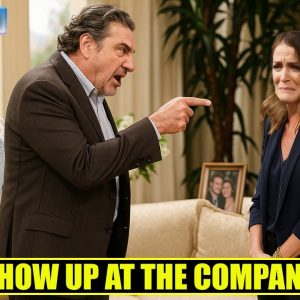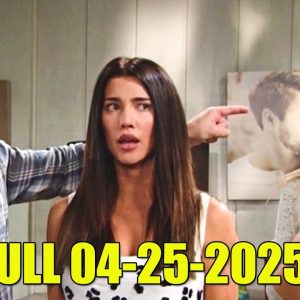In the intricate world of “The Bold and the Beautiful,” relationships and power dynamics are perpetually in flux, with personal and professional lives often intertwining in unexpected ways. A recent storyline has captivated audiences, centering on a scandalous kiss, ensuing betrayals, and decisions that could irrevocably alter the fabric of Forrester Creations.
The Unveiling of a Forbidden Kiss
The drama unfolds with the revelation of an intimate moment between Carter Walton and Daphne Rose. This unexpected kiss sends shockwaves through the Forrester Creations community, challenging the foundations of trust and loyalty. Carter, deeply involved with Hope Logan, finds himself ensnared in a web of regret and confusion, as a fleeting lapse in judgment threatens to dismantle a relationship he holds dear. The simplicity of a single kiss becomes emblematic of betrayal, forcing Carter to confront the duality of his desires: the allure of a new attraction versus the stability of his bond with Hope.
Hope’s Ultimatum: A Test of Loyalty
In the aftermath, Hope grapples with feelings of betrayal and heartbreak. Determined to reclaim control over her personal and professional life, she issues a startling ultimatum: for their relationship to mend, Daphne must be terminated from Forrester Creations. This demand transcends personal rivalry; it symbolizes Hope’s quest to restore balance and integrity in a world disrupted by deceit. The corporate corridors of Forrester Creations become the battleground for this emotional showdown, highlighting the intricate dance between personal grievances and business ethics. 
Carter’s Countermove: A Strategic Decision
Contrary to Hope’s expectations, Carter makes a bold and unforeseen decision: he chooses to fire Hope instead of Daphne. This move is not merely reactionary but is rooted in Carter’s vision for the company’s future. He perceives Daphne as an invaluable asset, especially with her pivotal role in the upcoming perfume campaign, which he believes is crucial for the brand’s growth. In Carter’s assessment, Daphne embodies the innovation and allure necessary to propel Forrester Creations forward, qualities he feels Hope no longer contributes. This action underscores the perennial conflict between personal emotions and professional ambitions, illustrating how business imperatives can sometimes overshadow longstanding personal relationships.
Daphne’s Satisfaction: Triumph Amidst Turmoil
Amid the chaos, Daphne emerges with a sense of satisfaction. Her position within the company is not only secure but also elevated, as she becomes central to the brand’s strategic initiatives. Her ascent, however, is tinged with the complexities of the turmoil surrounding her, reflecting the often-blurry lines between personal vendettas and professional victories.
Broader Implications: Lessons in Trust and Ambition
This storyline serves as a microcosm of larger themes prevalent in both corporate environments and personal relationships. It delves into the fragility of trust, the sacrifices made in the pursuit of ambition, and the intricate balancing act between personal integrity and professional advancement. Carter’s internal struggle mirrors a universal theme: the battle between temptation and commitment. Hope’s unwavering stance on accountability challenges us to consider the boundaries of forgiveness and the costs associated with it.
At its core, this narrative is a commentary on human vulnerability and the often-painful decisions that define our paths. The choices made by the characters are fraught with irony and regret, underscoring the notion that one misstep can alter the trajectory of everything that follows. Yet, within this maze of ambition and remorse lies the possibility of redemption—a chance for characters to learn from their mistakes and rebuild what has been lost, provided they confront the truths about themselves and the consequences of their actions.
Conclusion: A Reflection of Real-Life Complexities
As we reflect on these events, it becomes evident that the narrative intricately weaves personal drama with corporate intrigue. The characters are portrayed not as mere archetypes but as multifaceted individuals whose experiences resonate with anyone who has navigated complex relationships or faced challenging decisions in their professional life. The conflict between Carter, Hope, and Daphne encapsulates broader societal issues—trust, loyalty, and the struggle to balance personal desires with professional responsibilities in an increasingly demanding world.
In dissecting this storyline, viewers are reminded of the profound impact of choices and the delicate interplay between our personal and professional lives. The narrative challenges us to reflect on our values and the lengths we might go to protect what is most important to us, even when such decisions come at a significant personal cost.
This analysis underscores the enduring appeal of “The Bold and the Beautiful,” as it continues to explore the complexities of human relationships set against the backdrop of corporate power struggles.
Page 3
In the intricate world of “The Bold and the Beautiful,” relationships and power dynamics are perpetually in flux, with personal and professional lives often intertwining in unexpected ways. A recent storyline has captivated audiences, centering on a scandalous kiss, ensuing betrayals, and decisions that could irrevocably alter the fabric of Forrester Creations.
The Unveiling of a Forbidden Kiss
The drama unfolds with the revelation of an intimate moment between Carter Walton and Daphne Rose. This unexpected kiss sends shockwaves through the Forrester Creations community, challenging the foundations of trust and loyalty. Carter, deeply involved with Hope Logan, finds himself ensnared in a web of regret and confusion, as a fleeting lapse in judgment threatens to dismantle a relationship he holds dear. The simplicity of a single kiss becomes emblematic of betrayal, forcing Carter to confront the duality of his desires: the allure of a new attraction versus the stability of his bond with Hope.
Hope’s Ultimatum: A Test of Loyalty
In the aftermath, Hope grapples with feelings of betrayal and heartbreak. Determined to reclaim control over her personal and professional life, she issues a startling ultimatum: for their relationship to mend, Daphne must be terminated from Forrester Creations. This demand transcends personal rivalry; it symbolizes Hope’s quest to restore balance and integrity in a world disrupted by deceit. The corporate corridors of Forrester Creations become the battleground for this emotional showdown, highlighting the intricate dance between personal grievances and business ethics. 
Carter’s Countermove: A Strategic Decision
Contrary to Hope’s expectations, Carter makes a bold and unforeseen decision: he chooses to fire Hope instead of Daphne. This move is not merely reactionary but is rooted in Carter’s vision for the company’s future. He perceives Daphne as an invaluable asset, especially with her pivotal role in the upcoming perfume campaign, which he believes is crucial for the brand’s growth. In Carter’s assessment, Daphne embodies the innovation and allure necessary to propel Forrester Creations forward, qualities he feels Hope no longer contributes. This action underscores the perennial conflict between personal emotions and professional ambitions, illustrating how business imperatives can sometimes overshadow longstanding personal relationships.
Daphne’s Satisfaction: Triumph Amidst Turmoil
Amid the chaos, Daphne emerges with a sense of satisfaction. Her position within the company is not only secure but also elevated, as she becomes central to the brand’s strategic initiatives. Her ascent, however, is tinged with the complexities of the turmoil surrounding her, reflecting the often-blurry lines between personal vendettas and professional victories.
Broader Implications: Lessons in Trust and Ambition
This storyline serves as a microcosm of larger themes prevalent in both corporate environments and personal relationships. It delves into the fragility of trust, the sacrifices made in the pursuit of ambition, and the intricate balancing act between personal integrity and professional advancement. Carter’s internal struggle mirrors a universal theme: the battle between temptation and commitment. Hope’s unwavering stance on accountability challenges us to consider the boundaries of forgiveness and the costs associated with it.
At its core, this narrative is a commentary on human vulnerability and the often-painful decisions that define our paths. The choices made by the characters are fraught with irony and regret, underscoring the notion that one misstep can alter the trajectory of everything that follows. Yet, within this maze of ambition and remorse lies the possibility of redemption—a chance for characters to learn from their mistakes and rebuild what has been lost, provided they confront the truths about themselves and the consequences of their actions.
Conclusion: A Reflection of Real-Life Complexities
As we reflect on these events, it becomes evident that the narrative intricately weaves personal drama with corporate intrigue. The characters are portrayed not as mere archetypes but as multifaceted individuals whose experiences resonate with anyone who has navigated complex relationships or faced challenging decisions in their professional life. The conflict between Carter, Hope, and Daphne encapsulates broader societal issues—trust, loyalty, and the struggle to balance personal desires with professional responsibilities in an increasingly demanding world.
In dissecting this storyline, viewers are reminded of the profound impact of choices and the delicate interplay between our personal and professional lives. The narrative challenges us to reflect on our values and the lengths we might go to protect what is most important to us, even when such decisions come at a significant personal cost.
This analysis underscores the enduring appeal of “The Bold and the Beautiful,” as it continues to explore the complexities of human relationships set against the backdrop of corporate power struggles.





